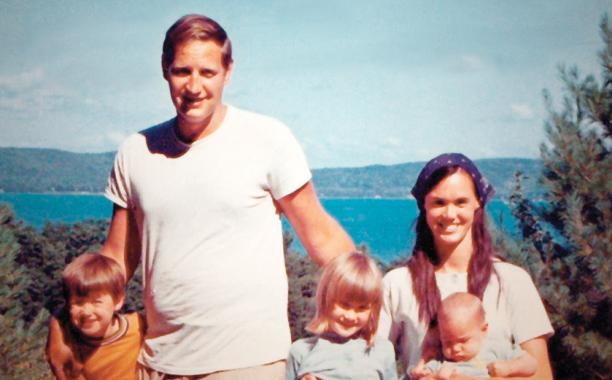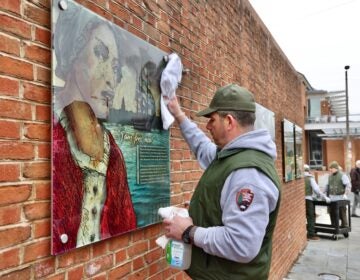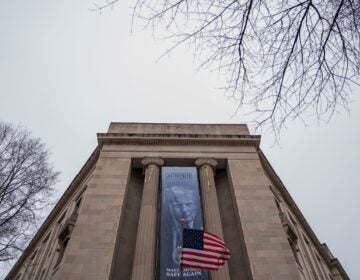Remembering the 1971 raid on the FBI office in Media, Pennsylvania

John and Bonnie Raines with their children. They were key members of the "Citizens' Commission". John was in 1971 and is today Professor of Religion at Temple University. Photo from the movie press information.
I recently saw the new documentary film “1971” (not to be confused with other movies with similar titles). This documentary recalls the planning, execution, and consequences of the 1971 burglary of the FBI office in Media, Pennsylvania, by antiwar activists.
This is a wonderfully produced movie which has received standing ovations at film festivals, with many 5-star on-line movie reviews that you can read for yourself. The film’s website is 1971film.com . For anyone who was opposed to the war in Vietnam, the movie recalls the time when it suddenly became clear that peaceful protest alone would never be enough to stop the war in which over a million men, women, and children would be killed. So then what? Activists struggled to answer that question.
In Philadelphia, a group was formed, including faculty members from Haverford College and Temple University, to plan a break-in at the FBI office in Media, to seize documents to try to find out what the FBI was doing to spy on and disrupt antiwar and other movement activities. Members of the “Citizens’ Commission to Investigate the FBI” were prepared to sacrifice their careers and risk criminal prosecution and imprisonment to carry out this direct action against the government waging war in Vietnam and suppressing the civil liberties of American citizens at home.
The burglary was planned for the night of March 8, during the televised “Fight of the Century” between boxers Joe Frazier and Muhammed Ali. It was hoped the heavily promoted boxing match would distract security guards and police, which it apparently did. A meticulously detailed and rehearsed plan required overcoming last minute obstacles and surprises, but succeeded in removing large quantities of documents from the FBI office.
In the stolen documents the activists found that not only had the FBI infiltrated and kept reports on all kinds of feminist, labor, student, and civil rights, as well as antiwar groups, but the FBI was engaged in a deliberate attempt to intimidate and sow paranoia within those groups to try to disrupt their legal and constitutionally protected activities. FBI agents spent taxpayer dollars to compose and send anonymous letters to activists threatening them and spreading lies about others in their group. FBI agents were proud of this work and bragged in their reports of their successes, like breaking up marriages by spreading lies about alleged infidelities. One famous FBI effort involved anonymously threatening Martin Luther King to kill himself to avoid disclosures about his personal life.
The activists made copies of the most outrageous documents found in the FBI files, and sent copies to the media and to members of Congress they hoped would take action. Most of the media and congressmen, however, including the New York Times and Senator George McGovern, returned their copies to the FBI, fearful of being accessories in possession of stolen property. Only the Washington Post, among the mainstream recipients, seriously considered the public’s right to know what their government was doing, and concluded that the documents should be reported and published.
The publication of the stolen documents in the Washington Post led to Congressional hearings that used the documents to discover and expose other FBI abuses and reveal its “Cointelpro” effort to disrupt legal activities of citizens. The Washington Post’s decision to publish was a precedent for its later decision to publish the “Deep Throat” leaks that exposed the Watergate scandal which led to the resignation of President Nixon.
Meanwhile, the FBI was furiously trying to identify and arrest the activists who had stolen and exposed their documents. Did you know that photocopies include a microdot that the FBI can use to trace the copy to a particular copying machine? They quickly discovered that copies of their documents had been made at Haverford College and Temple University.
Although the FBI was never able to identify and arrest the participants in the break-in at the Media FBI office, they believed their later arrests in the “Camden 28” case most likely included the Media burglars. The “Camden 28” had conspired to break into and disrupt a Selective Service office engaged in involuntary conscription of young men into the U.S. military.
A brilliant legal defense of the “Camden 28” led by my colleague at Temple Law School, Professor David Kairys, succeeded in obtaining a jury verdict of acquittal for all 28 defendants on all the criminal charges brought by the government. It was not disclosed until the release of the “1971” documentary, that the “Camden 28” defendants actually did include two of the Media FBI burglars.
Past misbehavior by the FBI should affect how we view the more recent disclosures of Edward Snowden regarding the extent of government surveillance. History teaches us that the U.S. government is not composed exclusively of high-minded people scrupulously respecting the law and the constitutional rights of their fellow citizens. The government consists of individuals, and individuals are always capable of abusing the powers available to them.
See this very enjoyable “1971” movie if you have the chance. For those of us who live in Philadelphia, it’s a great and colorful piece of local history.
WHYY is your source for fact-based, in-depth journalism and information. As a nonprofit organization, we rely on financial support from readers like you. Please give today.




